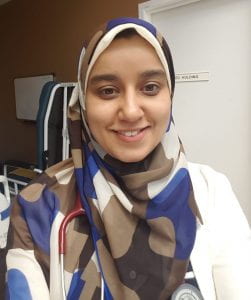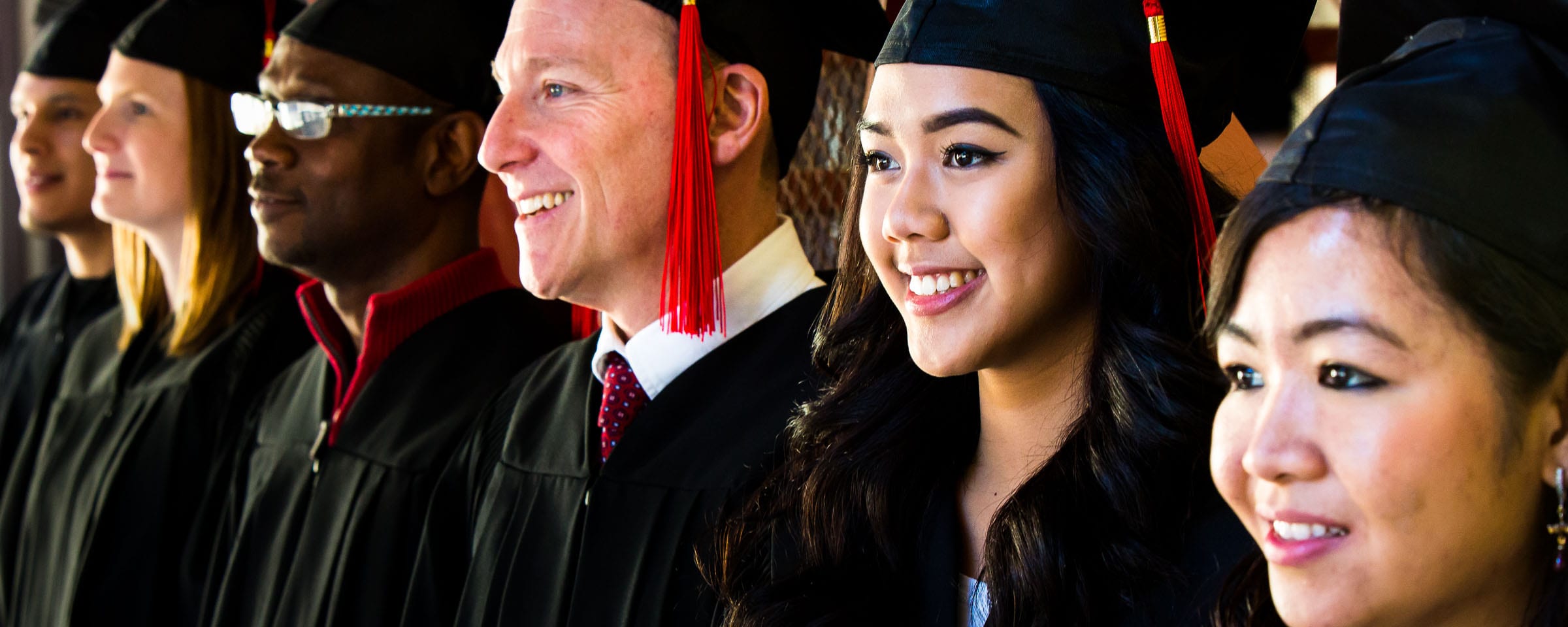Finding the words: Language training helps RRC grad begin medical career in Canada
 Becoming a doctor is a long and daunting process – especially when you don’t speak the same language as your future patients.
Becoming a doctor is a long and daunting process – especially when you don’t speak the same language as your future patients.
Dina Koreen knows the feeling. In 2013, she completed her studies to become a general practitioner in Alexandria, Egypt, but after years of maintaining a long-distance relationship with her husband, she opted to join him in Winnipeg, instead.
While her husband — who was also from Egypt, but moved to Canada for work in 2007 — had already established himself as an accountant, Koreen, who only spoke Arabic, had a long way to go before she could pick up her career again. After six months of basic English language training, she turned to Red River College.
“It was perfect,” Koreen says of the Language Training Centre’s Communication for Health Professions program. At five months, the program was shorter than Koreen expected – but also more intensive than she ever could have imagined.
“It was very hard,” she says. “I didn’t know it was going to be hard like this. It was nine-to-four every day from Monday to Friday, with three or four hours of homework at night.”
As many RRC grads can attest, that level of hard work often paves the way for opportunity. For Koreen, it led to a volunteering gig with CancerCare Manitoba. From there, she was able to obtain the experience she needed to complete the program in 2014 and pass her clinical assessment. When it came time to interview for her current job with the Winnipeg Regional Health Authority in early 2015, she had both the language skills and the confidence she needed.
“I didn’t know that all of this would come out of this course. But in the end when I look back, I would do it again.” She pauses and laughs: “I don’t really want to do it again.”
As a clinical assistant – or physician’s assistant – Koreen splits her time between four intensive care units in the city (Health Sciences Centre, Victoria Hospital, Concordia Hospital and St. Boniface Hospital), where she works with a supervising physician in preparing and implementing care plans for seriously ill patients.
“I love it when a patient comes in very sick in a critical situation, and after we take care of them for three to four months they walk away from the ICU feeling much better and walking on their legs,” Koreen says. “This is what I love about my job.”
However, the job comes with an even greater share of heartbreak, since many of the people coming into the ICU are elderly and very sick, she adds.
“The big challenge we face is when people pass away. And you see the relatives around them and they are struggling and suffering to accept the fact that they have passed away. I never get used to it. Some people will get used to the fact that people pass away and life continues, but sometimes I hold my tears. I don’t want to cry in front of people because it doesn’t look professional.”
While tears are pretty easy to translate, Koreen still occasionally struggles to convey other messages to her English-speaking patients, though she realizes that will come with experience.
She’s also challenged by her job’s 12-hour shifts, especially now that she and her husband have a 14-month-old son – and limited caregiver options, with no family or close friends in the city.
But she’s very grateful for her current position – and where she hopes it will lead her.
“I would like to get my license as a physician,” says Koreen, who is four exams away from a one- to three-year hospital residency that will help her realize her dream of being a family doctor.
It still seems like a ways off, but Koreen feels it’s within her reach – and can’t thank RRC’s Language Training Centre enough. In particular, she credits her English mentor, Mona Abu-Goush, for being so supportive of her and her LTC classmates.
“I will never forget my time there, and what it gave me,” she says.
Profile by Lindsey Ward (Creative Communications, 2004)
